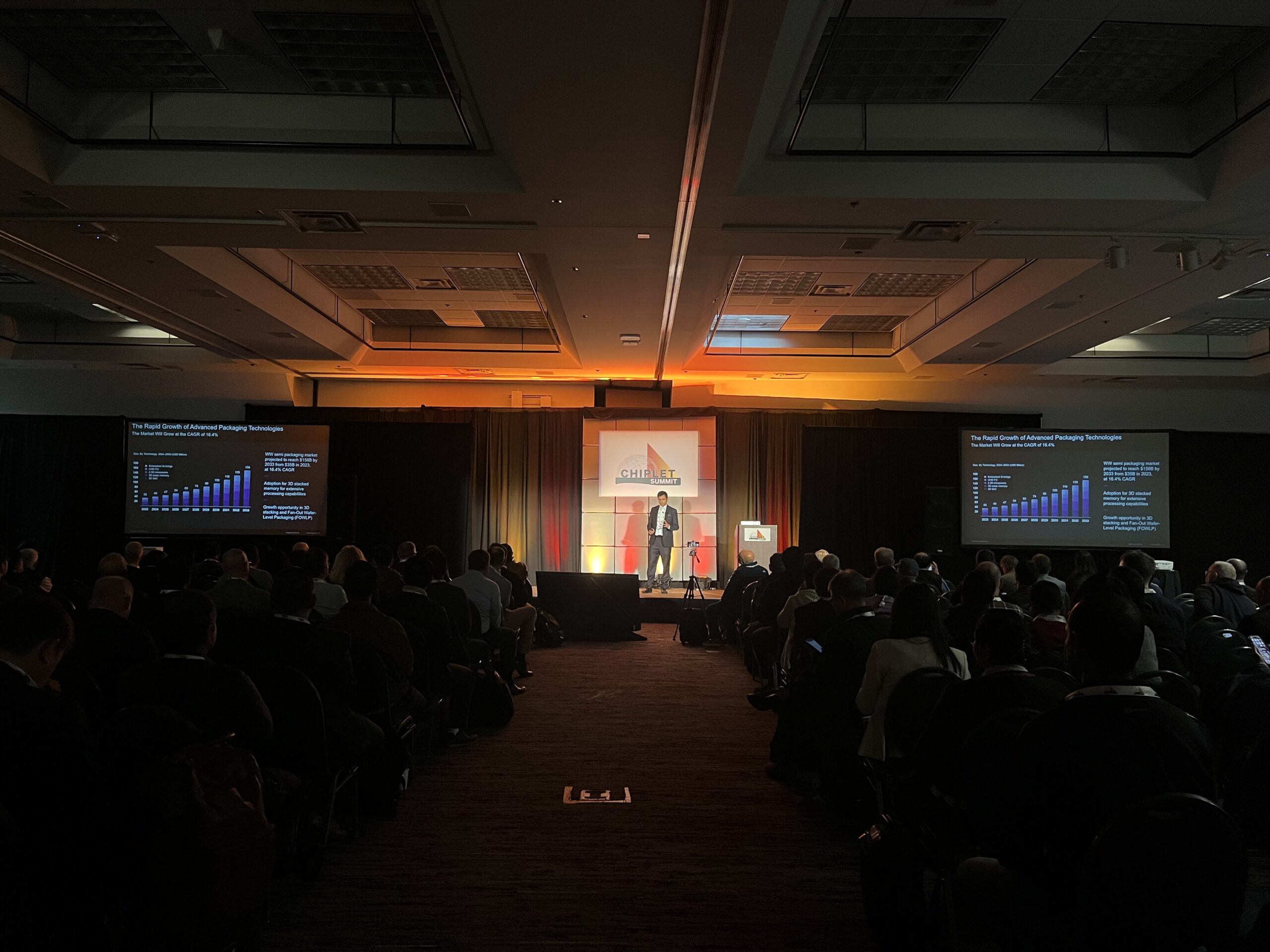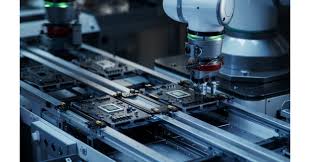In this tutorial we will see how to design a VHDL block. We will start with a very simple block and we will gradually add features to it. We will also simulate it and test its output with Matlab. Over the process we will see:
… Read More
 Designing the Future: AI-Driven Multi-Die Innovation in the Era of Agentic EngineeringAt the 2026 Chiplet Summit, Synopsys presented a…Read More
Designing the Future: AI-Driven Multi-Die Innovation in the Era of Agentic EngineeringAt the 2026 Chiplet Summit, Synopsys presented a…Read More An Agentic Formal Verifier. Innovation in VerificationIn a break from our academic-centric picks, here…Read More
An Agentic Formal Verifier. Innovation in VerificationIn a break from our academic-centric picks, here…Read More Reimagining Compute in the Age of Dispersed IntelligenceAt the 2025 RISC-V Summit, amid debates over…Read More
Reimagining Compute in the Age of Dispersed IntelligenceAt the 2025 RISC-V Summit, amid debates over…Read More Siemens to Deliver Industry-Leading PCB Test Engineering SolutionsSiemens has strengthened its position in EDA and…Read More
Siemens to Deliver Industry-Leading PCB Test Engineering SolutionsSiemens has strengthened its position in EDA and…Read More Agentic EDA Panel Review Suggests Promise and Near-Term GuidanceNetApp recently hosted a webinar on Agentic AI…Read More
Agentic EDA Panel Review Suggests Promise and Near-Term GuidanceNetApp recently hosted a webinar on Agentic AI…Read MoreThe 2016 Leading Edge Semiconductor Landscape
The leading edge semiconductor logic landscape has in recent years collapsed to just four companies. The following is a summary of what is currently known about each company’s plans and how they compare. ASML has analyzed many logic nodes and developed a formula that normalizes processes to a “standard node”.… Read More
Pushing automotive-grade embedded flash to 28nm
18 months ago Renesas announced they were prototyping their SG-MONOS eFlash on 28nm, and at the time we said it would be a couple of years before actual product. Yesterday, Renesas revealed their partner in this effort is TSMC – no surprise – and hinted things are moving, with better performance than expected but on a longer qualification… Read More
Five Things To See at DVCon India 2016
DVCon is an annual Design and Verification Conference that started out in Silicon Valley, then expanded by adding India as a new location. Our semiconductor design and verification world is global in stature, so if you’re living in the region then consider registering for this event held Thursday and Friday, September … Read More
Petahertz Electronics?
In the early days of integrated components, we used to think kHz (~10[SUP]3[/SUP]Hz) processing was pretty wild. Those systems were quickly eclipsed by MHz (~10[SUP]6[/SUP]Hz) performers and now we’re blasé about GHz (~10[SUP]9[/SUP]Hz) speeds. Recently (2014), DARPA announced a THz (~10[SUP]12[/SUP]Hz) amplifier, built… Read More
TSMC Fab 12 is a Pokemon Go Stop!
It only seems fitting that Fab 12 is a PokeStop since TSMC stands to make a lot of money from the augmented reality gaming craze that is sweeping the world. Unfortunately, most of the press I have read about Pokemon Go has been negative but that is the new “negative media” world we live in. As a player myself (level 25) and a semiconductor… Read More
Time for U.S. Fatality Reduction Targets
Almost exactly a year ago I wrote a blog implicating the insurance industry in the high level of highway fatalities in the U.S. As part of that blog (“The Insurance Industry Has Blood on Its Hands”) I suggested that the National Highway Traffic Safety Administration ought to look into developing a fatality-reduction… Read More
Is Your Next Reality Going to be Augmented?
John Lennon reportedly once said “Reality leaves a lot to the imagination…” and now we have the technology to do something about making our reality a lot more imaginative. Unless you have been living under a rock (and there is nothing wrong with that – I just haven’t found the right rock myself) there is a LOT going on these days in the… Read More
AMD Zen and the Art of Microprocessor Maintenance
AMD is a fantastic company with highly talented people, but for some reason just hasn’t managed to put a winning streak of microprocessor architectures back-to-back. It’s frustrating to watch: they ride like mad to catch up to or even pull slightly ahead of Intel, then fall back in the pack when they have to make an extended pit stop,… Read More
The Role of IP Selection and Integration in First-Time Silicon Success
As IP expert Eric Esteve has written, Semiconductor IP has consistently outgrown the other design enablement segments and will continue to do so. This has been my personal experience as well during my EDA and IP career so we should all know how important Semiconductor IP is. We certainly know how valuable it is with ARM valued at $32B!… Read More



Advancing Automotive Memory: Development of an 8nm 128Mb Embedded STT-MRAM with Sub-ppm Reliability